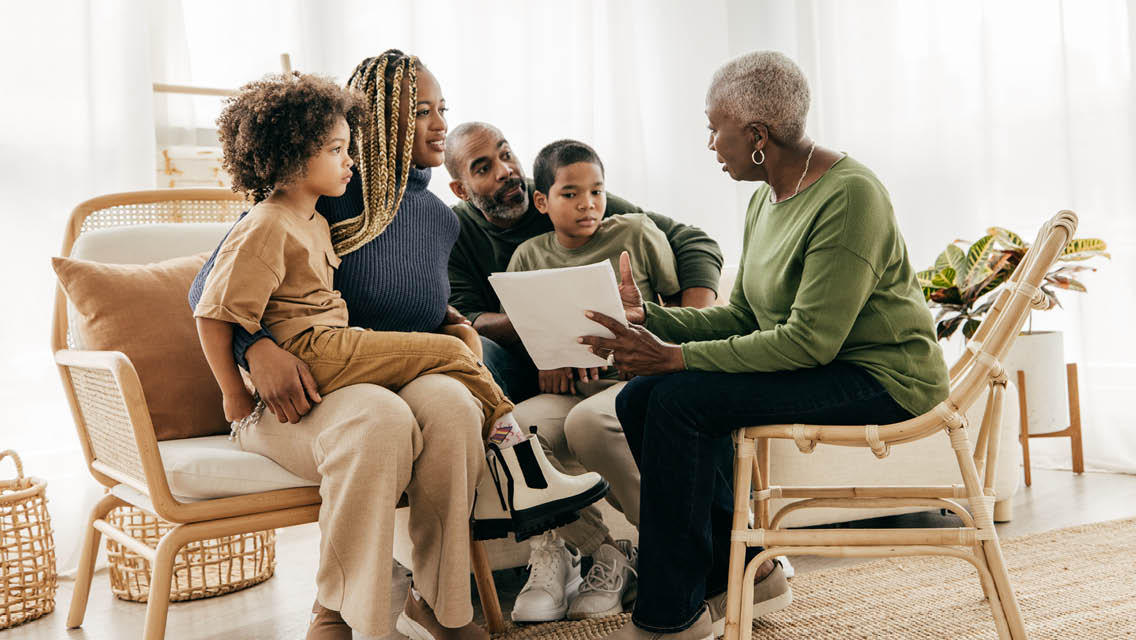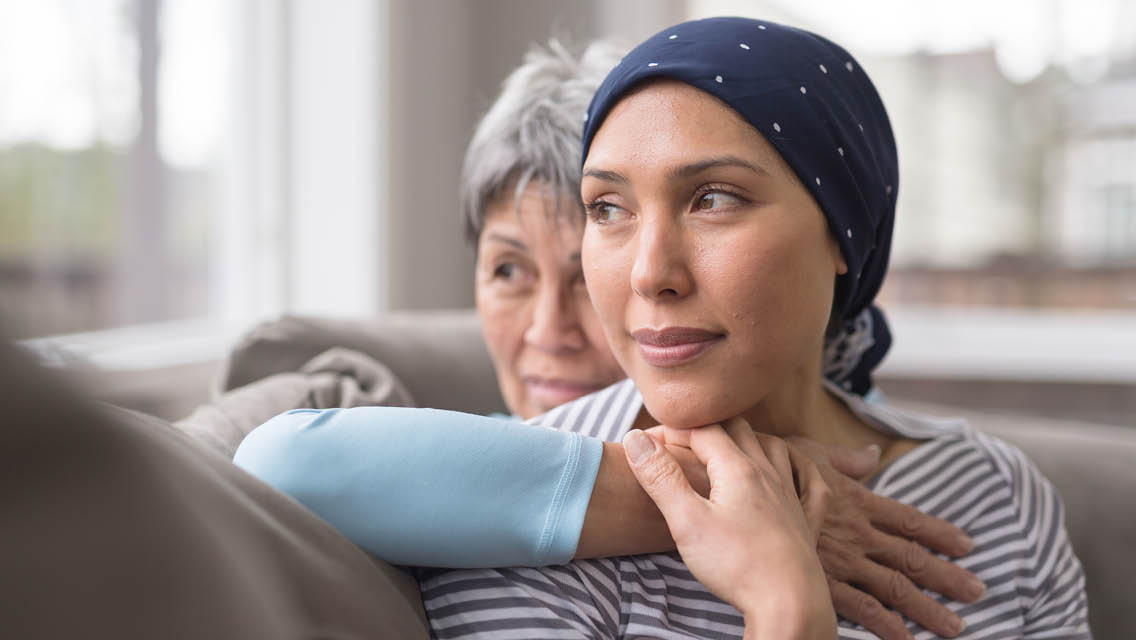The moment I noticed a voicemail from my friend Alice, I knew something was wrong. We’re texters, not callers. I left my date alone at the bar and slipped outside, where I listened to her message. “I don’t know how to tell you this,” Alice said, her voice shaking, “but Chloe is dead.”
Chloe was my Alexander Technique teacher. I’d started sessions with her a few years earlier, when my doctor suggested that she might be able to help ease the debilitating pain I’d been feeling in my hands: a repetitive strain injury that comes with my work as a writer and editor. I’d meet her for appointments in her converted studio apartment, where she’d observe me while I stood and walked around, saying things like “let your knees float” and recommending ways to move my body more comfortably.
I never understood exactly how the Alexander Technique worked, but I knew that it did. After working with Chloe for just a few months, I could use a keyboard again, write with a pen, and clip my own fingernails. And she helped others too, including Alice, who learned of Chloe’s death on what was then Twitter.
Over the coming weeks, we’d find out that Chloe had cancer and that she hadn’t told anyone but her assistant. I was devastated that I hadn’t had the chance to say goodbye and confused about why she had kept her diagnosis a secret. At first, I could only guess at her reasoning. Chloe was so nurturing by nature — maybe she felt she wouldn’t be able to resist the pull of comforting us, thereby depriving herself of the energy she needed to heal. Or perhaps . . . I didn’t know.
Asking Why
I know now, after speaking with several experts, that there are plenty of reasons someone might choose not to share a difficult diagnosis. Many people cite a desire to process the information in their own way, at their own pace.
One person, writing under a pseudonym in a Good Housekeeping article, detailed her reasons for not disclosing her breast-cancer diagnosis at age 47. When her oncologist pushed her to share her situation, saying she’d get more support, she bristled at the suggestion.
“I knew the kind of support my oncologist promised, while well-intentioned and meaningful, would be detrimental to my psyche,” she explains. “Cancer breaks you wide open and I didn’t want people, no matter how beloved, picking apart my ugly innards. Giving everyone a seat at the table where I was waging a war for my life didn’t feel supportive. It felt intrusive.”
You may also worry that sharing the news might irrevocably alter your social relationships, explains Nora McInerny, host of the podcast Terrible, Thanks for Asking and author of It’s Okay to Laugh (Crying Is Cool Too). “I’ve met people who’ve been through all different kinds of situations and losses and diagnoses,” she says, “and the fear I hear often is, ‘If somebody knows this about me, that will be all they see in me. That will redefine my relationship to them.’” (Learn more about McInerny’s story here.)
Or you may simply need more time to make sense of the news yourself, says Neha Sangwan, MD, author of TalkRX and Powered by Me. “If the person is young and knows their runway has been shortened by 50 years, it’s often a very different experience than an 81-year-old who has gone through the gradual decline in function of their body,” Sangwan explains. “How unexpected the diagnosis is to the person combined with their skill in navigating their emotions determines the level of overwhelm and trauma that they’re experiencing. Their level of self-trust and emotional boundaries will likely affect how comfortable they’ll feel sharing the information with others.”
Experience Life staffer Jane Meronuck was 52 when she was diagnosed with a cancer of unknown origin and told she had seven months to live. She shared her diagnosis only with her immediate circle, waiting three months to write a CaringBridge post; she wanted to understand her disease and prognosis more clearly before sharing it with a wider group. (Learn more about Meronuck’s story at “Jane Meronuck’s Success Story.”)
I now have a much better understanding of Chloe’s wordless exit from her students’ lives. I don’t judge her decision; that’s not my place. There’s no right or wrong way to reveal a difficult diagnosis. There’s only the way to do it for you.
How to Share the News On Your Terms
Here are some ways to find an approach that works best for you — and a few strategies for making the process easier.
1) Find a Spokesperson
Nora McInerny had been dating her late husband, Aaron, for a year when he was diagnosed with glioblastoma. He asked her to tell people for him. “I did not know his family that well,” she recalls. “He wanted me to do it because it was too much for him. I am honored that I got to do that, and I was completely unprepared to do that.”
Still, McInerny adds, she could see how much her role as spokesperson helped Aaron, in that it allowed him to focus on healing.
Jane Meronuck’s husband, Chris, filled that communications role for her, she says.
But, because not everyone has a partner, McInerny suggests enlisting a friend, a sibling, or even a care professional to help you disclose your diagnosis to a wider circle. “If you don’t have a Nora, find a Nora,” she advises.
2) Read the Room
Last summer, I found out via text that a friend of mine had died by suicide. On a second occasion, I learned — also via text — that another friend had been murdered. In neither case did the person sending the text ask if I was in the right headspace for that kind of news. Both times, I felt completely blindsided, or what McInerny calls “driveby devastated.”
When you’re considering how to reveal a difficult diagnosis (or how to instruct your spokesperson to do so), McInerny suggests practicing “conversational consent” by making sure it’s the right time and place for the person to receive the information. It can be as simple as saying, “I have something to tell you that’s difficult for me to say, and it might be difficult for you to hear. Is this a good time?”
3) Write a Practice Script
Whomever you choose to tell about your diagnosis — and however you choose to tell them — writing down some important points ahead of time can help you make sure you don’t forget anything, and it may help calm your nerves when you deliver the news. It can also help you prepare yourself (or your spokesperson) for the inevitable questions. (See “Compassionate Communication” for examples of initiating difficult conversations.)
On that note, expect a range of reactions from your friends and family. Unfortunately, some people won’t react well to distressing news. A few people I spoke to for this article noted that some of the folks they most expected to be pillars of support during their crises actually disappeared — and some found relief and comfort from people they’d previously considered only minor players in their lives.
4) Set Boundaries Beforehand
If you do choose to talk to certain people directly, defining boundaries ahead of the conversation can help avoid potential problems.
If you just want to tell the person but don’t want advice, be sure to make that clear. You can say something like this: “I don’t need you to fix this problem or offer advice, but I need to tell you something.” McInerny adds that this step is especially important in relationships involving people harboring beliefs that differ from yours — whether those beliefs are religious, spiritual, or otherwise.
“When we expect people to just know what we want without explaining it to them,” she says, “it’s setting the relationship up for failure.”
By expressing your needs ahead of time, you’re setting everyone up for success.
5) Use Social Media (or Don’t)
If you want to reach many people at once, social media is a good way to do it. And if you want support from others, many social platforms allow you to connect with people in your specific situation — after all, there are Facebook groups for just about everything.
Meronuck found support through a Facebook group for stage IV cancer patients. “It was invaluable to have access to people who knew firsthand what I was experiencing,” she recalls.
End-of-life doula Michelle Kolling, founder of the Minneapolis-based service Held, adds that sharing news via social media allows you to make your desired level of contact clear. “It’s a good way to communicate that you don’t want individual conversations at that time, like ‘We’ll reach out personally as soon as we are able,’” she explains.
You can also clearly state that you’re not looking for treatment advice or describe specifically the kind of support that you do want from your social media circle.
As with all things online, there are pitfalls to avoid. If you want to notify certain people yourself, make sure you’ve told them before posting about it. And get familiar with your privacy settings and your network so you know how far the information is traveling. You might choose to share on a platform that’s limited to people coping with a situation similar to yours — or you might be comfortable notifying a wider group all at once.
But it’s really up to the individual. Some people simply don’t use social media, or they don’t enjoy it. There’s no reason to share this sort of news in a specific way just because it’s something other people do. “You’re not obligated to bleed out your personal information, feelings, or details for anybody else’s benefit,” McInerny says. “You aren’t. That is completely up to you.”
6) Get Professional Support
Doulas like Kolling can offer crucial support for people nearing death. They can help you prepare to break the news — if and when you choose to do so — by helping to facilitate difficult conversations or helping you prepare your practice script.
They can also provide nonmedical, practical, emotional, and spiritual support for those facing the end of life — as well as for their loved ones. “We can spend time with the family, to get to know the family dynamics,” Kolling explains. “And we then can focus on the dying person and what is important to them now.”
She’ll often help with letter writing or legacy projects, to offer people a sense that they’ll be remembered and that their lives had meaning.
Few of us feel comfortable talking about death, much less preparing for it, Kolling notes. “Because of advances in the medical field and in healthcare, it’s common to view death as a medical failure instead of a part of life.”
She wants to normalize conversations about dying and what to expect during that process.
Kolling believes what she does is similar to the role of a birth doula, except that she’s facilitating an exit rather than an entrance. “It’s the other end of life. It’s the birth out of this life.”
Balance
Explore more empowering strategies to support your efforts to live in (closer) alignment with your values at our Balance department.
This article originally appeared as “Sharing a Difficult Diagnosis” in the March/April 2024 issue of Experience Life.





This Post Has 0 Comments